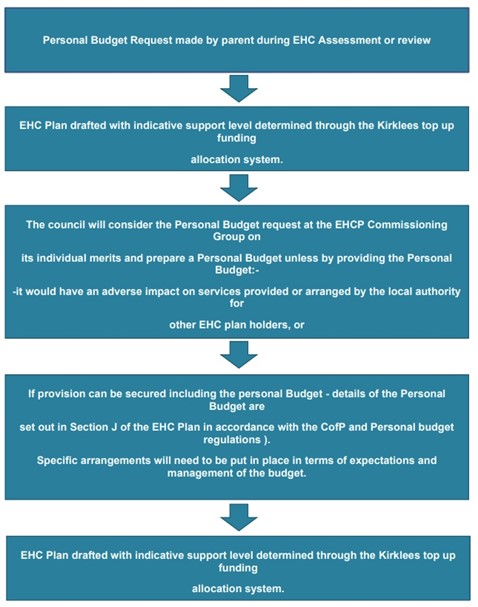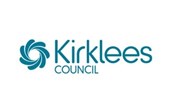Schools and academies are funded for a financial year according to a formula using factors set in national regulations and are allocated a ‘School Budget Share’. A statement informing schools of their funding for the new financial year is published each year.
Funding is allocated to mainstream schools and academies under three main headings:
Element 1
Core Educational/School place funding (sometimes referred to as the Age Weighted Pupil Unit (AWPU))
Schools get most of their funding based on the total number of pupils in the school. Every pupil in a school attracts an amount of money and this is the core budget for each school. It is used to make general provision for all pupils in the school including pupils with SEN.
This funding is not available as a personal budget.
Element 2
The School’s Notional SEN Budget
Within the ‘School Budget Share’ there is a ‘notional’ budget for SEN. The amount in this budget is based on a formula which has been agreed between the schools and Kirklees.
It is the responsibility of each school to make sure the ‘notional SEN budget' caters sufficiently for the special educational needs of the children and young people in their school. Schools have a duty to identify, assess and make special educational provision for all children with SEN; and the council has a duty to set out what schools are expected to provide from their delegated budget.
A school should use its notional SEN budget to fund up to £6,000 worth of special educational provision for a pupil with SEN (over and above the basic entitlement of all pupils including those with SEN (Element 1)), including those with EHC Plans. Not all pupils with SEN require special educational provision up to the amount of £6,000, it will depend on the individual needs of each pupil.
This funding would not normally be allocated as a personal budget; however a school can choose to release funding from this budget should it so choose.
Element 3
High needs Block - ‘Top Up’
If the council decides that special educational provision for a child or young person should be made through an EHC Plan, then the council will allocate additional educational funding over and above the funding already delegated to the school for Elements 1 and 2 described above. This is called high needs ‘top up’ funding.
Top up funding is allocated by the council to enable the school to make the appropriate special educational provision to meet the outcomes identified in the EHC Plan.
‘Top up’ funding will vary through the year as this money “follows” the child. Kirklees council revises ‘top up’ funding on a termly basis to take account of children who join or leave schools during the year.
In the majority of cases, the SEN Funding that goes directly to school, college or other educational setting as described above, is sufficient to deliver the special educational provision detailed in Part F of the EHC Plan.
This funding would not normally be allocated as a personal budget; however a school can choose to release funding from this budget should it so choose.

